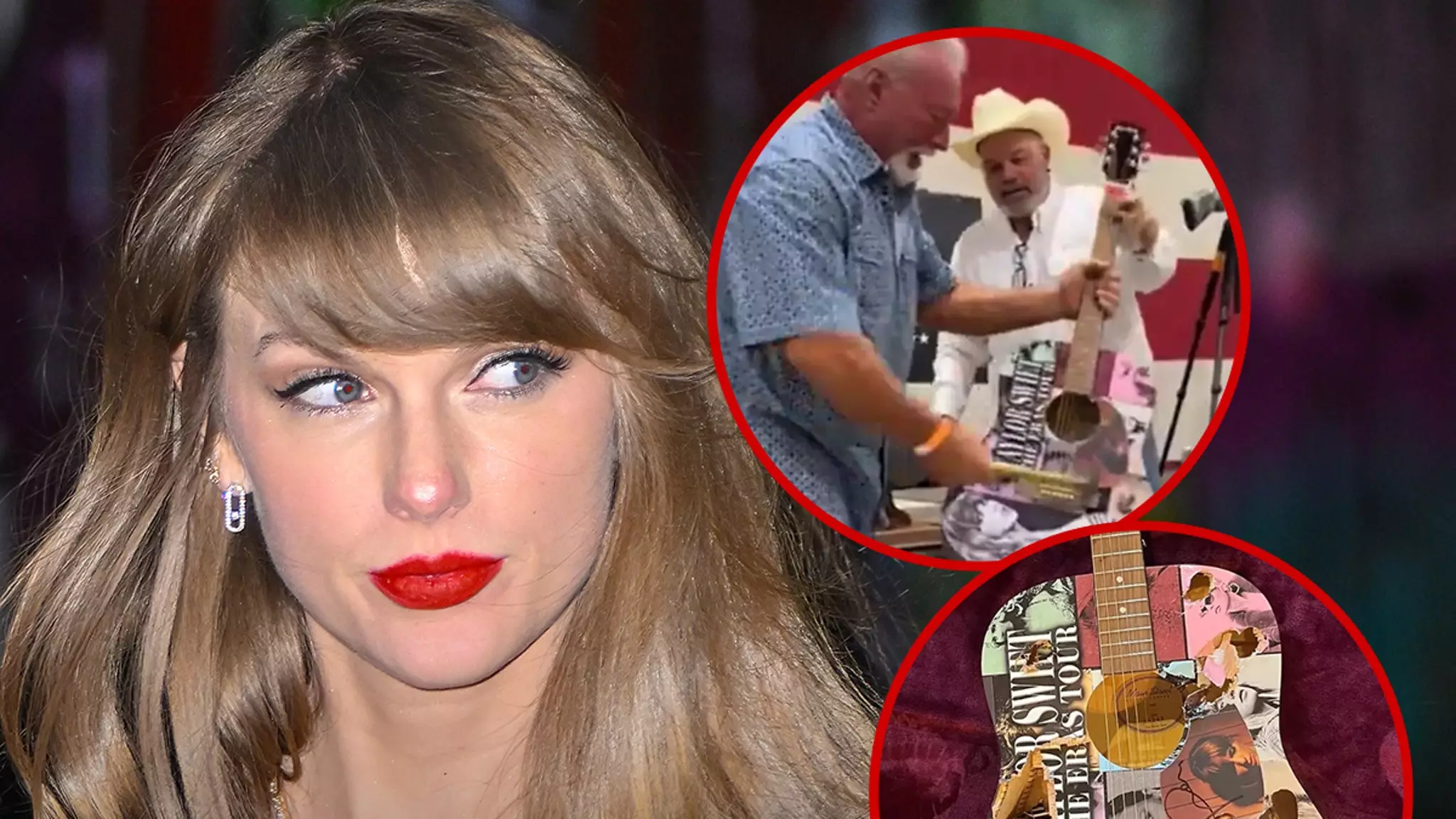In a recent episode that caught public attention, Gary Estes, a 67-year-old Texas resident, became an unwillingly viral figure when he purchased a guitar purportedly signed by pop icon Taylor Swift for $4,000, only to obliterate it with a hammer shortly after. This event has ignited a whirlwind of reactions, tapping deeply into the intertwined realms of celebrity culture, political statement, and public outrage. Far from being a simple case of fanboys and merchandise, this incident exposes broader cultural fissures in the relationship between artists and their audience.
Estes, in various interviews, has defended his striking act as merely a jest, distancing himself from any accusations of malice. He insists that the idea was not originally his, attributing it to what he describes as a “light-hearted bit” conducted during the Ellis County Wild Game Dinner’s charity auction. Auctioneer Craig Meier echoed these sentiments, suggesting that the atmosphere was lively and filled with laughter rather than hostility. However, it begs the question of how humor is interpreted in contemporary society, especially when interwoven with polarizing public figures such as Taylor Swift.
While Estes and Meier may attempt to frame the guitar-smashing as harmless fun, the act cannot be divorced from its political context. Swift’s recent vocal support for Vice President Kamala Harris after the presidential debate has made her a target for backlash from segments of society that feel antagonized by her stance. The guitar incident is not an isolated act of destruction; it appears to be a performative rejection by supporters of a political figure, reflecting their discontent towards Swift’s perceived interjection into political discourse.
The destruction of the guitar transcends personal expression and veers into the political battlefield, evidenced by its resonance with fellow Trump supporters who have shared similar sentiments online. Social media platforms saw a wave of disavowals from “Swifties” who felt betrayed by the artist due to her political endorsements. In essence, the public reaction to the event reveals a literacy of coded messages where the destruction is not merely vandalism but a statement of loyalty to a political identity.
In an ironic twist, the now-smashed guitar is listed on eBay, another layer to this multifaceted encounter with commerce turned commentary. What does it say when memorabilia, imbued with so much cultural weight and emotion, can be commodified again post-demise? This act challenges the very notion of value attached to celebrity merchandise and raises questions about the ownership of cultural artifacts in today’s tumultuous political climate.
Ultimately, the Taylor Swift guitar incident serves as a microcosm of larger societal debates around politics, celebrity culture, and the mechanisms through which individuals express discontent. Whether it is perceived as a joke, a political stunt, or a misguided attack on a beloved icon, it undeniably echoes in the corridors of public discourse, encapsulating the complexities of fandom in an age of division. As social media continues to chronicle these moments, individuals are left to ponder the consequences of their symbolic gestures, both personal and political.

Leave a Reply